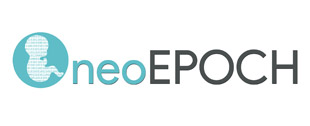UNDERSTANDING HOW PREMATURITY AND NEC IMPACTs BABIES AND THEIR FAMILIES WHEN THEY LEAVE HOSPITAL.
Imperial College London is running a small study alongside the WHEAT Trial to explore how being born prematurely (early) and having a condition called necrotising enterocolitis (NEC) affects babies and their families in the first year after leaving hospital. By understanding these challenges, we hope to improve the support available to families during this important time.
We don’t yet know much about how prematurity and NEC affect family finances, as this hasn’t been studied before. Learning about these financial impacts could help us find ways to ease the strain on families in the future.
We’re also interested in how brothers and sisters are affected when a baby is born prematurely. This study will look at their quality of life in the first year after their new sibling is born. Understanding this will help us create better support for the whole family, not just the baby.
Why is this important?
The birth of a premature baby can bring many unexpected challenges for families, including emotional, physical, and financial strain. When a premature baby is diagnosed with a condition like necrotising enterocolitis (NEC) during their stay, this can make the challenges even more difficult.
While much research has focused on the care that premature babies and those with NEC receive in the hospital, far less attention has been given to how families are affected once they leave the hospital. Families often face hidden costs, such as travel expenses for follow-up appointments, time off work to care for their baby, and the expense of medical equipment or extra care at home. This study aims to better understand these financial impacts and how they affect families in the months after discharge.
We also want to learn more about the wider effects of prematurity and NEC, particularly on siblings. Although the primary focus is often on the baby, the health and wellbeing of brothers and sisters can also be significantly affected. These experiences are not well understood, but they are crucial in designing care and support that helps the whole family.
Ultimately, our goal is to gather a clearer picture of what families go through after the birth of a premature baby with NEC. With this information, we hope to help design better care and support packages that address the real-life needs of families like yours, both financially and emotionally, to make their journey a little easier.
How are we going to do this?
At least 75 parents of premature babies currently receiving care in NHS neonatal units will be invited to take part in this study. This will include 50 parents of babies born prematurely and 25 parents of babies born prematurely and diagnosed with a condition called necrotising enterocolitis (NEC). The study will initially involve 5 NHS hospitals across England, with the possibility of additional hospitals joining later.
Participation in this study involves completing a set of short questionnaires to provide information about quality of life, overall wellbeing, and financial circumstances related to the birth and care of a premature baby. These questionnaires will explore topics such as time off work, additional costs like medical equipment, and the frequency of medical appointments, including visits to the GP or hospital. No intrusive questions or requests for financial documents will be made.
For families with other children at home, a modified version of a standard health questionnaire, tailored for younger age groups, will also be offered to siblings. This will focus on health and wellbeing and will not include questions about finances. Participation by siblings is optional, and families can choose to only complete the primary questionnaires if preferred.
The questionnaires take approximately 30 minutes to complete and will be administered at three time points:
At the time of the baby’s discharge from the hospital.
Six months after discharge.
Twelve months after discharge.
They can be completed on a smartphone, tablet, or via paper copies if preferred. All responses will be kept confidential and used solely for research purposes.
Participation is voluntary, and it is possible to withdraw from the study at any time without providing a reason. This will not affect the care provided to the family or baby in any way.
How can I contribute?
We would love to hear from you if you are either:
A parent who has had a premature baby and spent time on a neonatal unit, we’d love to hear from you
The sibling (brother or sister) of a baby who was born prematurely
It’s important that we hear from parents and family members who have experiences like yours, to make sure our research is well-designed and ultimately benefits premature babies and their families.
If you’d like to help us, please click the link below and get in touch!

